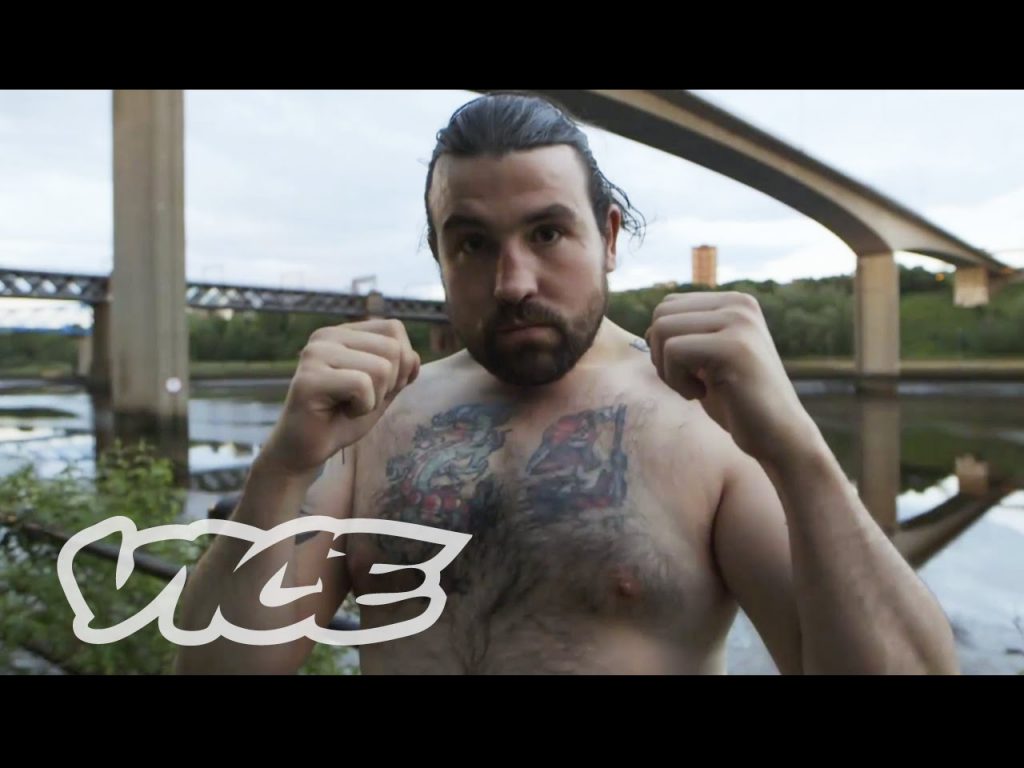Common British stereotypes may conjure images of well-mannered chaps sipping tea, but the white linen gloves come off in this expose of the UK’s bare knuckle boxing (BKB) culture. Conversations with some of the scene’s most venerable fighters reveal the softer side of the people behind a sport with a brutal reputation. Fighter-turned-promoter Andy Topliffe gives us the rundown on his B-BAD fighting company, a brand that strives to legitimize BKB fighting through organized matches that are kept relatively clean. While socking your opponent unconscious is encouraged, things like dirty moves and gambling won’t be tolerated at a B-BAD event. Topliffe is driven by his love of the sport and a desire to see it grow. We join James “Gypsy Boy” McCrory, a bear of a man and self-described “softie” who loves his mom and cuddling, as he stuffs his face at a diner. McCrory is packing on the pounds in anticipation of an upcoming fight against American competitor Jason Young in what will be the first UK/US BKB match since the late 1800s. As the McCrory/Young match draws nearer McRory shares more about the role of bare knuckle fighting in his life and we meet Young, a boastful man confident he’ll level his opponent with ease. We learn that many bare knucklers have violent backgrounds of street crime and are now reformed, able to focus their violent energy in a controlled manner. One such BKB enthusiast is 46 year-old solicitor Seth Jones, who gave up a life of drug slinging to study law while remaining an active fighter in his spare time. In an interview with James “Mr. Happy” Lambert, we hear the case for giving up violence completely instead of continuing to vent it in a controlled setting. An undefeated BKB champ, Lambert now refuses to hit anything, not even the punching bag he keeps as a reminder of his past; yet his scrappy, nervous movements betray his undying fighter’s instinct, as his friends note when talking about him. These are just a few of the personalities profiled in this look at the BKB subculture which asks us to consider whether the controlled nature of the violence legitimizes the sport, or if it only serves to perpetuate a level of machismo taken to the extreme.
Bare Knuckle

